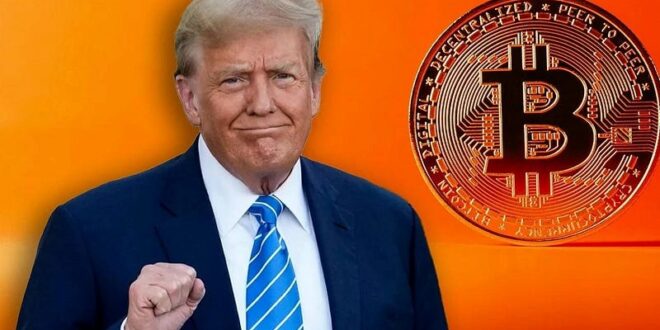Bitcoin prices have been on the rise this year, partially due to President-elect Donald Trump’s announcements about establishing a crypto-friendly administration. One of the key ideas being discussed is Trump’s plan to create a strategic reserve of bitcoin, aiming to make the U.S. a leader in the global cryptocurrency space.
In July, during a conference, Trump emphasized that holding onto the country’s bitcoin assets would help build “a permanent national asset for all Americans.” He sees this as a step toward enhancing U.S. leadership in cryptocurrency, with some advocates urging his administration to go further by building a bitcoin reserve similar to the gold and oil reserves the U.S. holds.
How a Bitcoin Reserve Could Function
According to Arkham Intelligence, the U.S. government already holds around $20 billion worth of bitcoin, much of it acquired through legal seizures. Federal officials occasionally sell these holdings, but Trump has shown interest in stopping future sales to form a core bitcoin reserve.
“For too long, our government has broken the cardinal rule that every bitcoiner knows by heart: Never sell your bitcoin,” Trump said in July.
Bitcoin’s price has already increased by over 100% this year, and by halting sales, the U.S. could help stabilize and possibly elevate bitcoin prices, benefiting current investors. Seoyoung Kim, associate professor of finance at Santa Clara University, explains, “If you limit the supply in the real-time market, it prevents price suppression.”
Push for a Strategic Bitcoin Reserve
Some believe that simply holding bitcoin is not enough and are calling for a more comprehensive approach. Republican Senator Cynthia Lummis of Wyoming introduced a bill to have the U.S. acquire 1 million bitcoin (around 5% of the total supply) over time, holding it for at least 20 years. Lummis argues that a strategic bitcoin reserve could help reduce the U.S.’s $36 trillion national debt and strengthen the dollar. She believes that while bitcoin is volatile in the short term, it is a stable store of value over time.
Trump also sees the potential of such a reserve to keep the U.S. ahead of competitors like China in the cryptocurrency race. “We’re going to do something great with crypto because we don’t want China or anyone else to lead. We want to be at the forefront,” he told CNBC.
How Other Countries Are Responding
Several countries already hold significant bitcoin reserves. As of now, China has $18.5 billion in bitcoin, followed by the United Kingdom with $6 billion, Ukraine with $4.5 billion, Bhutan with $1 billion, and El Salvador with $582 million, according to BitcoinTreasuries.
However, not all experts agree that the U.S. needs a bitcoin reserve to stay competitive. Michele Neitz, a professor at the University of San Francisco, argues that regulatory clarity around digital assets would benefit the U.S. economy more than holding such a volatile asset in reserve.
Potential Risks of a Bitcoin Strategic Reserve
There are risks involved in creating a federal bitcoin reserve. Owen Lau, a senior analyst at Oppenheimer & Co., believes that while creating a stockpile is simple, funding a strategic reserve would require Congress’s approval, which is unlikely. “Taking the step to actively buy and sell bitcoin would be quite risky and hard to justify to the public,” Lau said.
Concerns about cyberattacks on crypto wallets and bitcoin’s price volatility remain prominent. While bitcoin is trading near record highs, it has seen massive drops in the past — including a 70% fall between November 2021 and November 2022. Lau noted, “If bitcoin’s value rises, the government benefits, but if it falls, taxpayers will bear the loss.”
A Barclays analysis also warned that funding a bitcoin strategic reserve might require issuing new treasury debt, which could face strong opposition from the Federal Reserve. Fed Chair Jerome Powell confirmed that the Fed has no intention of holding bitcoin, stating, “We’re not allowed to own bitcoin. That’s a decision for Congress, but we’re not pursuing a change to the law.”
Conclusion
While Trump’s plan for a bitcoin strategic reserve aims to bolster U.S. leadership in the cryptocurrency space, it faces several challenges — from securing congressional approval to mitigating the risks associated with bitcoin’s volatility. As debates continue, the possibility of the U.S. holding a bitcoin reserve remains a point of interest for investors and policymakers alike.
 Business Sandesh Indian Newspaper | Articles | Opinion Pieces | Research Studies | Findings & News | Sandesh News
Business Sandesh Indian Newspaper | Articles | Opinion Pieces | Research Studies | Findings & News | Sandesh News



